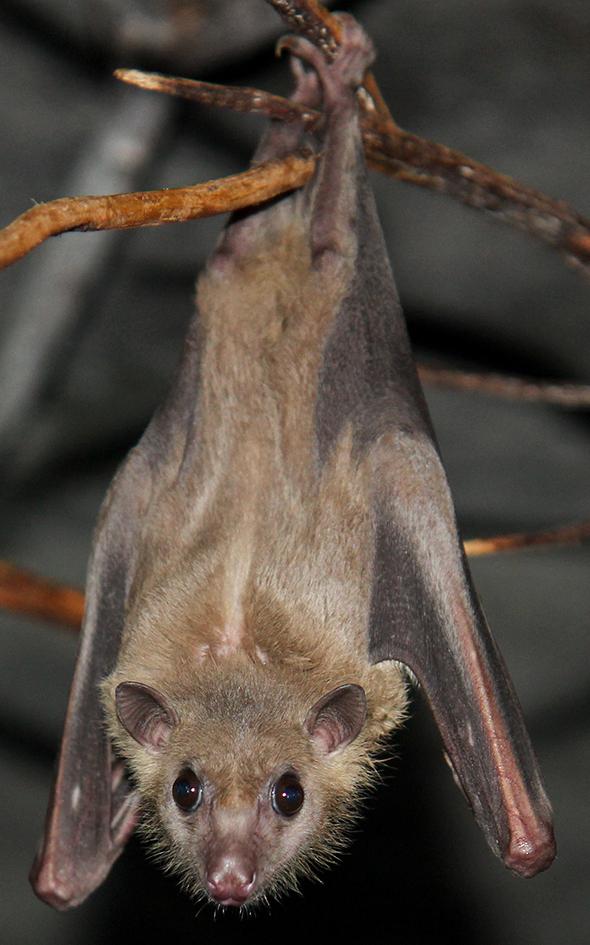Marburg virus is an RNA virus of the filovirus family, just like ebola, causing severe hemorrhagic fever. The virus spreads through direct contact with blood and body fluids of a person who is sick or has died from the disease, or with surfaces and materials (e.g., bedding, clothing) contaminated with these fluids. The illness it causes is associated with high fever, muscle aches, vomiting and internal bleeding. Marburg virus infection is an epidemic disease with a high mortality rate (between 24-88%). Many of the signs and symptoms of Marburg virus disease (MVD) are similar to other infectious diseases (such as malaria or typhoid fever) or viral hemorrhagic fevers (e.g. ebola), thus at the early stage of the illness the clinical diagnosis of MVD is difficult.
The Egyptian fruit bat or Egyptian rousette (Rousettus aegyptiacus), which is the reservoir host of Marburg virus, can be found in Africa, the Middle East, the Mediterranean (Cyprus, Anatolia), and the Indian subcontinent (e.g. Pakistan). Fruit bats infected with Marburg virus do not show obvious signs of illness. Primates (including people) can become infected with Marburg virus, and may develop serious disease with high mortality.
MVD typically appears in sporadic outbreaks throughout Africa. Major outbreaks occurred in the Democratic Republic of Congo (1998-2000) and Angola (2004-2005), with typically only one case - or less - identified per year since then.

Although the virus has caused few cases in recent decades, it is expected to become more common in Africa. Virologists expect this to happen as more and more ecosystems on the continent are being disrupted by population explosion and loss of natural habitats, bringing the virus reservoir into contact with humans. In West Africa, for example, an outbreak of the disease has long been expected.
At the same time, in today's globalised world, infectious diseases can spread to other parts of the world with increasing ease. Examples of this include the coronavirus pandemic or the monkeypox outbreak, which is also ongoing. According to WHO, the risk of this outbreak is high at the national level, moderate at the regional level, and low at the global level: there is a risk for this outbreak to spread to neighboring countries, but the risk of a global pandemic is low. Based on the current risk assessment WHO advises against any restriction of travel and trade to Ghana.
Outbreak containment measures should be continued and strengthened in the affected region, including: scaling-up surveillance activities (active case search, contact monitoring, and investigation), testing of suspected cases, early isolation of the suspected and confirmed cases. It is also important to raise awareness of the risk factors for MVD infection and the protective measures that individuals can take to reduce human exposure to the virus.
The evolution of the current outbreak and the future spatial spread of the virus should be monitored.
